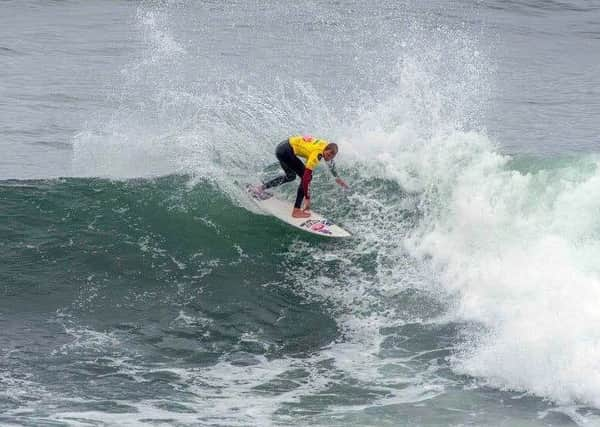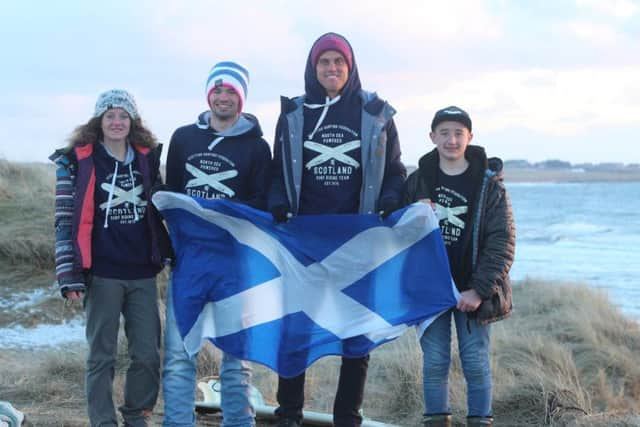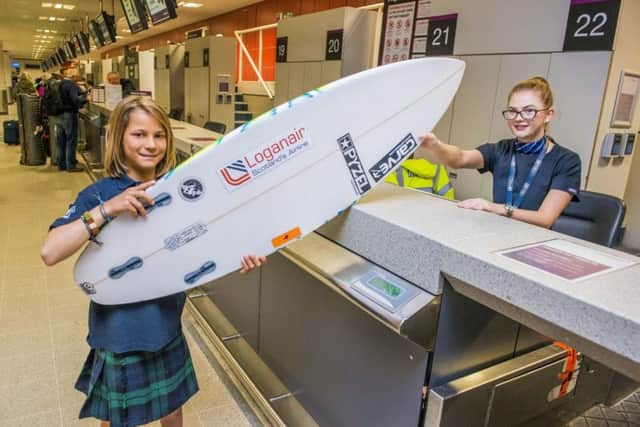Scotland's surfers look set to lose hard-won independence


At this stage the SSF’s application for recognition by the International Surfing Association (ISA) was still under review, but while the paperwork was being sorted out, they had been invited to field a team as a gesture of encouragement and goodwill. Scotland’s surfers didn’t exactly sweep all before them at the 50th edition of the Games, but they still achieved a very respectable 16th place finish, just ahead of wave-rich Tahiti. Any sense that a Scottish surf team was some sort of chuckle-worthy novelty act was instantly dispelled at that first event.
The following year, after yet more paperwork, Scotland finally gained recognition as an “associate member” of the ISA – that is, as a nation recognised by the ISA but not by the International Olympic Committee (IOC) – and the team went on to compete in the World Surfing Games in Nicaragua in 2015, Costa Rica in 2016, and France in 2017. I was looking forward to following their exploits at the World Surfing Games in Tahara, Japan this year too, but was surprised to discover that there would be no Scottish team at the event. So I called Mark Boyd, secretary of the SSF and also captain of the Scottish team, and asked him what was going on. Turns out that the inclusion of surfing in the 2020 Olympics, while an exciting prospect for the sport as a whole, is a bit of a nightmare for Team Scotland, who, having only recently gained their independence as a surfing nation now seem to be on the verge of losing it again.
Advertisement
Hide AdAdvertisement
Hide Ad“It’s very complicated,” says Boyd, and he isn’t kidding. Because the 2019 and 2020 editions of the World Surfing Games will be used to decide which nations qualify for the 2020 Olympics, only national teams recognised by the IOC are able to take part in those two events. Initially, then, it looked as if Scotland and other associate members of the ISA like Hawaii and the Channel Islands would only be able to compete in two World Surfing Games every four years. However, the news then got even worse, as Boyd explains:


“The Olympic qualification cycle is only two years, but American teams qualify through the World Surfing Games for the Pan American Games, which is their qualification opportunity for the Olympics.
“Basically [the ISA] didn’t want Hawaii competing as well as the USA [at the 2018 World Surfing Games] so they just put a blanket ban on all the non-National Olympic Committee countries including Tahiti, the Channel Islands, Scotland, England, Wales... I did ask if we’d be able to compete in the years outwith the cycle and they said in theory yes, but that wasn’t a definite answer. We’re still hoping there’s going to be one year out of every four we’re going to be able to go [to the World Surfing Games] but we’ll see.”
There has been a British team competing at this week’s World Surfing Games in Japan, but there’s no Scottish interest – it’s made up of five English surfers and one Welshman, with the selections having been made based on previous results. And as Boyd points out, the new set-up doesn’t just hurt Scottish surfing by giving its top athletes fewer opportunities to compete at the highest level.
“This is also a pretty negative thing for us as far as funding’s concerned,” he says. “There are opportunities for more funding from Sport Scotland if you perform at world championship level, but they’ve taken that away. And not only that – UK Sport have confirmed that they won’t be funding any new sports, so surfing isn’t going to be getting any funding [from there either].


“Nothing really positive has come out of this thus far,” Boyd concludes, “but we wish the team that’s over there all the best and hope that maybe there’s a chance of a British team getting into the Olympics. All our focus now is on trying to get a Scottish athlete into the team before then.
“The British Surfing Championships will be at Thurso in 2020, and that will be within the Olympic qualification cycle, so we’re hoping that a bit of a home advantage might help some of our surfers get into the British team. That’d be fantastic, so that’s what we’re setting our sights on now.”